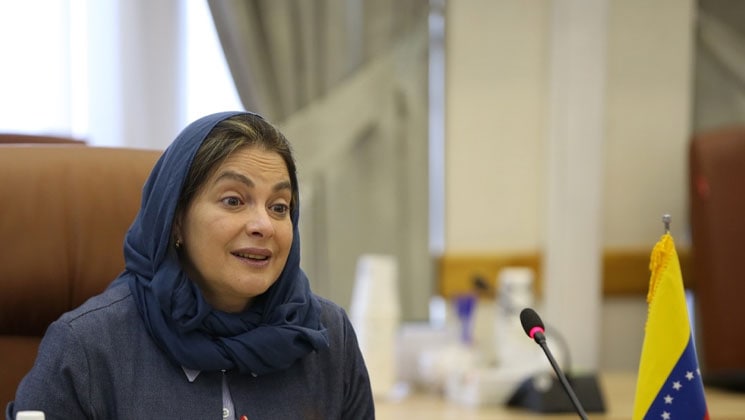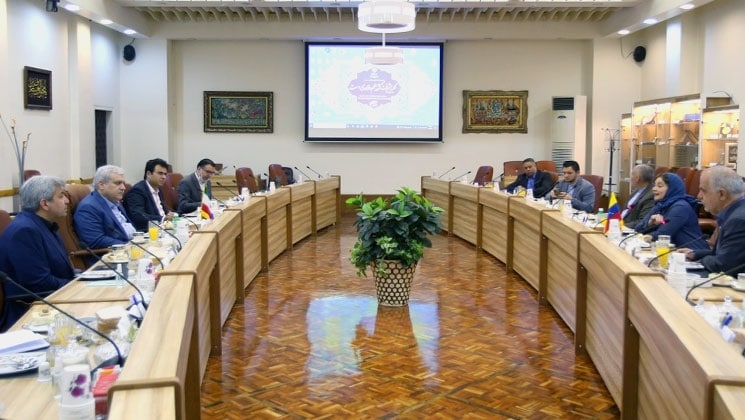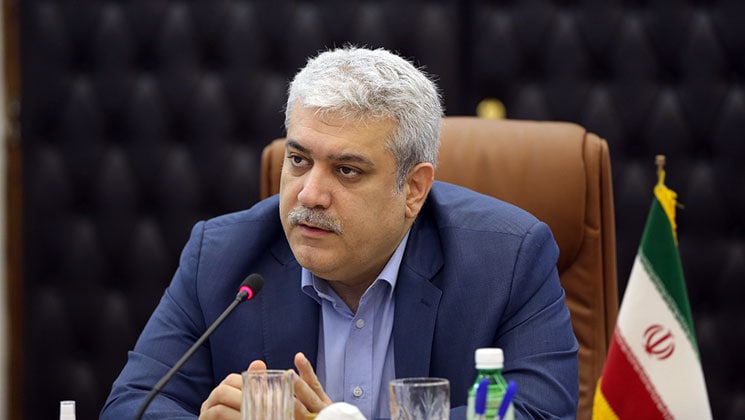In late June, 2022, Venezuela’s Minister of Science and Technology Gabriela Jiménez, who travelled to Iran as part of the Venezuelan president’s entourage, visited the iHit’s permanent exhibition of knowledge-based products.
The Venezuelan official then held a meeting with Iranian Vice President for Scientific and Technological Affairs Sorena Sattari and Head of the Presidency’s Center for International, Scientific and Technological Cooperation Mehdi Ghalenoei.
At the end of the meeting, Ms Jiménez said her country was willing to have scientific and technological cooperation with Iran.

In the meeting, the Iranian vice president said the development of knowledge-based and creative companies has laid the groundwork for technological and innovative cooperation with friendly countries.
Sattari added that Iran has acquired significant capability to produce human and animal vaccines using knowledge-based companies.
According to the vice president, the time is ripe for technological development and commercialization of many vaccines needed by the country. Sattari added that the very capability can serve as a basis for exports of Iranian-made products and technological interaction with Venezuela. He further said that besides the strong public sectors in Iran, private sector companies have entered the medicine and medical equipment production fields.
Sattari added that knowledge-based companies have done research and development work way more than the public sectors have done, stressing that most of the Iranian vaccines are currently produced by knowledge-based companies that have enlarged their R&D units.
Sattari underlined the need to define a specific mechanism for approvals and financial exchanges, saying that a challenge facing technological cooperation between the two countries is a mechanism of financial exchanges. This, Sattari noted, must be solved through bilateral interaction because knowledge-based and innovative companies are active in the private sector and a smooth and reliable path should be put in place for their financial exchanges.
He noted that knowledge-based companies mainly employ innovative tools to tackle sanctions. Sattari maintained that a special mechanism for approvals and standards needs to be put in place for knowledge-based companies to enable Iranian-made products to enter the Venezuelan market, particularly pharmaceutical and medical products.
According to Sattari, this process needs to run its course within the framework of a special and smooth mechanism.
Sattari further declared that Iranian knowledge-based and creative companies are prepared to take part in Venezuela’s exhibition, saying upwards of 75 knowledge-based firms have announced their readiness to participate in the event.
The Iranian vice president urged Venezuela to identify promising companies in the country to help with development of this cooperation. He maintained that this will let both sides work together and noted that Iran is prepared to engage in technological interaction with Venezuela in any field with the help of the Islamic Republic’s knowledge-based companies.
Venezuelan Science and Technology Minister Gabriela Jiménez said for her part that Iran’s capabilities in the medical and pharmaceutical fields would be a proper area for cooperation between Tehran and Caracas.
She said such fields as medical and health equipment, husbandry technologies, cultivation of pharmaceutical herbs, livestock medicines and health, and advanced environmental materials are areas in which Venezuela is interested to use Iran’s capabilities.

